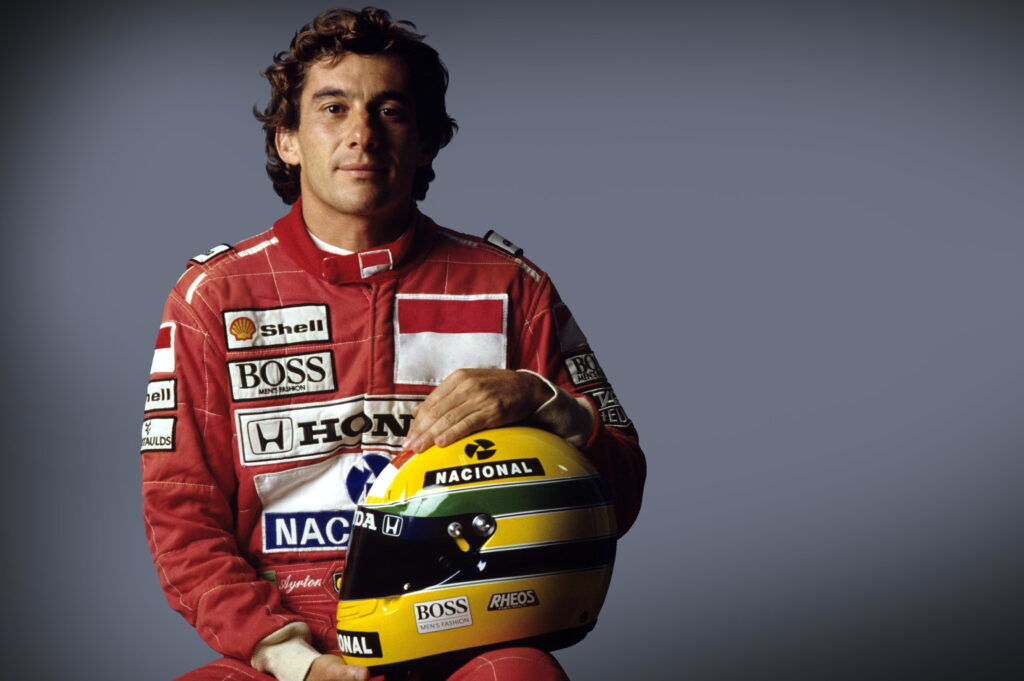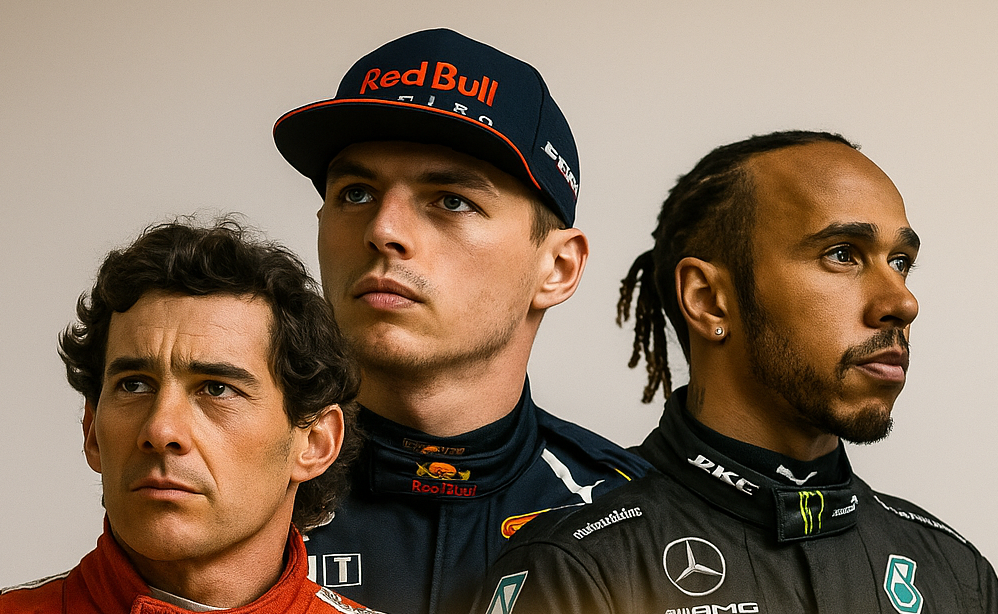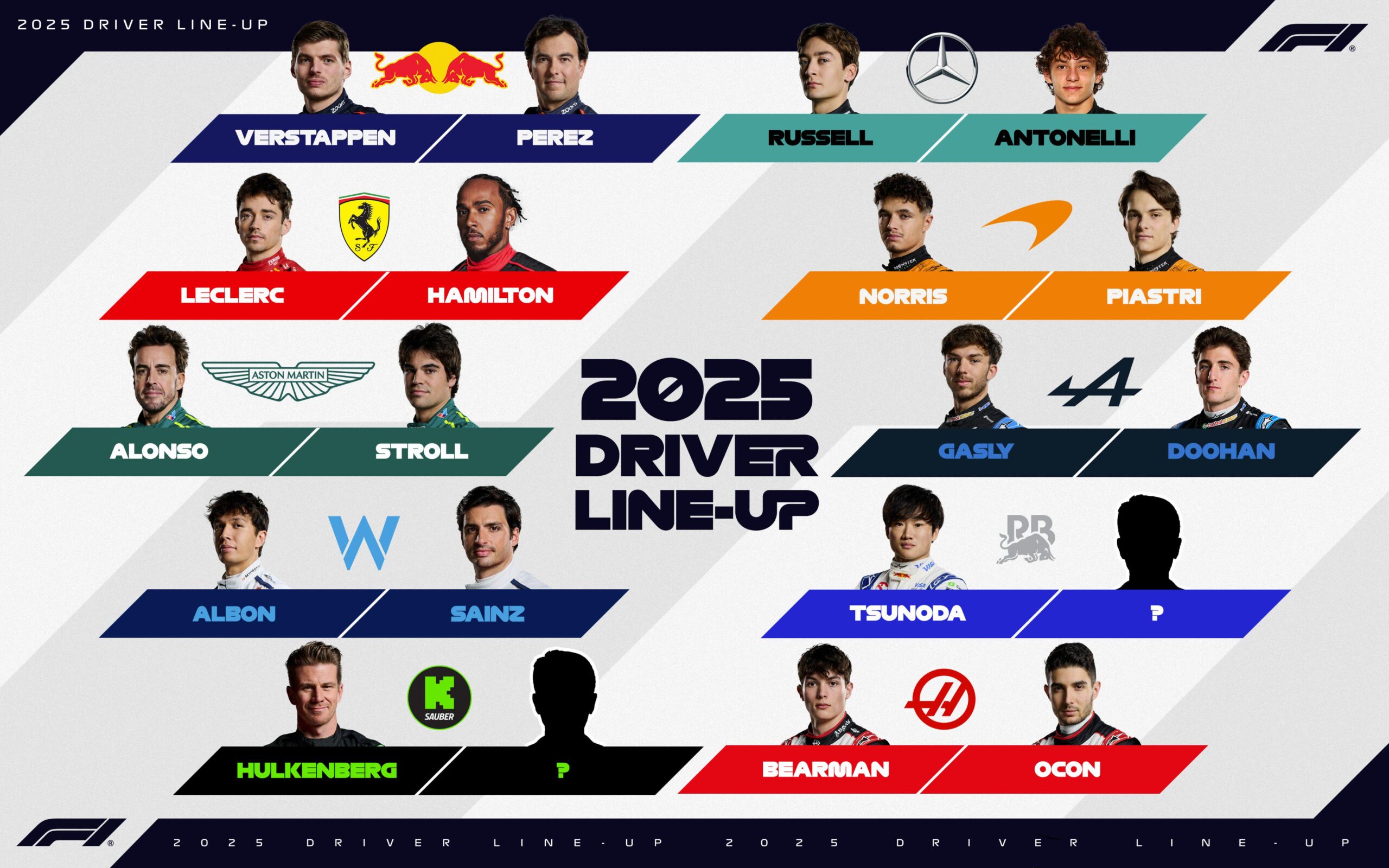Many Formula 1 fans have strong opinions about the best F1 drivers of all time. Some rank them by championship count, while others emphasize raw speed or sheer racecraft. Debates can ignite quickly when discussing who truly deserves a spot at the top. Even so, every enthusiast agrees these drivers helped shape F1 history, forging an enduring legacy on the track and off.
They excelled in different eras, overcame unique challenges, and delivered unforgettable moments. Although championship titles and pole positions provide a snapshot of a driver’s success, the complete picture is often more nuanced. From daring wheel-to-wheel battles to unprecedented records, each name in the conversation has something special to offer.
Below is a look at the ongoing debate over legendary F1 figures, some important considerations in comparing them, and a closer look at seven iconic racers. The span of their careers shows why they continue to captivate fans, whether viewed from the vantage point of pure statistics or from the passion and drive they revealed in every race.
Debate over F1 legends
Formula 1 has evolved remarkably since the 1950s, changing everything from engineering to safety standards. These shifts make it difficult to compare drivers from different eras. A champion in the 1960s needed different skills than a champion in the 2010s, but both navigated the limit of what their machines could handle. The argument over the best F1 drivers of all time is partly about subjective details, including personality, driving style, and the caliber of competitors each faced.
Internal rivalries also shape debate because top drivers frequently push each other to excel. In some cases, this led to high-speed collisions, tense standoffs, and dramatic finales that still define entire seasons. Every era produced standouts, and many fans enjoy pondering imaginary matchups: Who would win if Ayrton Senna raced against Lewis Hamilton in the same car, or if Juan Manuel Fangio faced off against Michael Schumacher at their respective peaks?
Even data-driven evaluations can create controversy. Models like f1metrics—or modern analytics tools used by teams—attempt to measure a driver’s performance by isolating variables such as car excellence or track conditions. Some supporters view these models as essential in dissecting raw driver skill, while others argue that racing is too intricate to distill into numbers alone. Regardless of the approach, people on all sides agree that F1 has produced too many legends to ever name just one uncontested greatest.
Considerations for ranking
Various elements play into conversations about ranking iconic drivers. The following factors commonly emerge in discussions, whether among casual fans or seasoned racing analysts:
Championship titles: A high tally indicates consistent excellence, but the role of team funding, reliability, and luck must not be overlooked.
Grand Prix wins: Victory totals demonstrate a driver’s ability to convert opportunities into results, often reflecting skill in overtaking and race pace.
Pole positions: Qualifying performance highlights raw speed. For some observers, seeing who can deliver a single perfect flying lap is the purest test of talent.
Era and competition: The depth of the driver field, car technology, and safety regulations can shift drastically over time.
Intangible factors: Moments of brilliance that defy statistics, such as wet-weather dominance or fearless, wheel-to-wheel duels that rewrite the script.
No single metric can fully capture a driver’s ability. Instead, drivers are often evaluated by the combined weight of statistics, personal impression, and historical context. There is no perfect formula, but some standout names repeatedly rise to the top of any list.
TOP 7 F1 drivers of all time
Some drivers left the sport with multiple championships, while others became legends without needing record-breaking stats. The individuals below are widely regarded as evidence that greatness can arrive in different forms.
Michael Schumacher
Often considered the greatest “F1 driver of all time,” Michael Schumacher is a name synonymous with dominance and precision. Few driver lists omit Michael Schumacher. He dominated the early 2000s with Ferrari, claiming seven championships across his career. Between 1994 and 2004, he showcased fearless commitment and a knack for extracting every ounce of performance from his team and car, remaining some of F1’s most dramatic memories.
Highlights of his career
Won two titles with Benetton in 1994 and 1995, then five consecutive championships with Ferrari from 2000 to 2004.
Amassed 91 Grand Prix wins and 68 pole positions.
Renowned for his intense work ethic and ability to motivate an entire team around him.
Schumacher influenced how teams structured themselves to focus on a single lead driver and further demonstrated that staying physically fit was vital for success in modern F1. His battles on track, particularly against drivers like Mika Häkkinen, remain some of F1’s most dramatic memories.
Lewis Hamilton
Lewis Hamilton equaled Schumacher’s championship tally, proving to be a formidable force from his 2007 debut onward. He burst onto the grid as a rookie alongside Fernando Alonso at McLaren and very nearly took the drivers’ crown in his first year. In 2008, Hamilton became the youngest ever Formula 1 champion at the time.
Record-breaking achievements
Claimed seven championships, the first in 2008 and multiple titles from 2014 to 2020 during the Mercedes-dominated era.
Holds 105 Grand Prix wins and 104 pole positions, making him statistically the most successful F1 driver to date.
First Black driver in F1 history, serving as an influential role model in motorsport.
Hamilton’s ability to maintain top form through rule changes and era shifts has cemented his place in countless discussions about driver greatness. His fierce on-track rivalries, especially with teammate Nico Rosberg and later Max Verstappen, underscore his competitive edge.

Ayrton Senna
Ayrton Senna secured only three championships, fewer than some of his peers, yet for many he was the embodiment of pure driver skill. Known for a daring style, Senna claimed numerous victories in torrential conditions, showcasing an uncanny feel for the car on wet tracks.
Mastery of raw speed
Achieved 41 race wins and 65 pole positions in his career.
Recognized in multiple studies of qualifying performance as one of the quickest ever, sometimes measured as tenths of a second faster than his closest rivals.
Maintained passionate rivalries with Alain Prost and captured the imagination of fans worldwide.
His untimely death at the 1994 San Marino Grand Prix cut short a brilliant life in racing, but Senna’s status as a legend remains unshakable. Many compare his lightning-fast laps to a finely tuned performance, blending precision and risk to mesmerizing effect.
Juan Manuel Fangio
At a time when Formula 1 had minimal safety measures, Juan Manuel Fangio’s skill and bravery earned him recognition as one of the greatest drivers in motorsport’s early decades. His dominance in the 1950s came when the sport was far more dangerous, adding even more weight to his achievements.
Early dominance
Claimed five championships between 1951 and 1957.
Notched 24 race wins and 29 pole positions in an era featuring fewer annual events.
Drove for several teams, including Alfa Romeo, Ferrari, and Mercedes, adapting to distinct machinery faster than most.
Fangio’s refined driving style continues to inspire modern racers who analyze past masters. Despite the rudimentary constraints of the cars he raced, his example proves that raw talent will always find a way to shine.
Alain Prost
Nicknamed “The Professor” for his calculated approach, Alain Prost excelled at consistent point-scoring and strategic thinking over the season. He proved that winning a championship can be about balancing aggression with thoughtful race management.
Cerebral approach
Gathered four championships during his career, two with McLaren, one with Williams, and another with McLaren after a close rivalry against Senna.
Logged 51 victories and 33 pole positions.
Renowned for measured risk-taking, which led to a high rate of finishes.
His head-to-head duels with Senna defined the late 1980s, resulting in moments still discussed by fans. Prost’s success illustrated how mental tactics and controlled aggression can be as valuable as raw pace.
Sebastian Vettel
Sebastian Vettel burst onto the scene as a fresh-faced Red Bull driver, winning four consecutive championships between 2010 and 2013. He exhibited unyielding focus once in front, often creating substantial gaps over the rest of the field.
Red Bull era
Collected four championships, all with Red Bull Racing.
Recorded 53 wins and 57 pole positions.
Noted for near-flawless “lights-to-flag” victories where he dominated from pole position.
Though his later years brought fewer victories, Vettel’s success in the early 2010s stands out as one of the most efficient displays of teamwork and driver dominance in recent F1 history. Many long-time followers rate him among the sport’s best for his mastery of Red Bull’s aerodynamically advanced cars.
Max Verstappen
Max Verstappen, initially known as F1’s youngest driver, quickly proved his potential with bold overtakes and fearless driving. Over time, his racing style matured, translating into multiple titles.
Rise to multiple titles
Secured four championships, most recently in 2024.
Claimed 63 Grand Prix wins and 40 pole positions.
Began as a prodigy for Red Bull, delivering record-breaking feats in his early seasons.
Verstappen’s remarkable skill, combined with an aggressive edge, has placed him in the conversation about prospective future legends. His battles with Hamilton reflect a generational shift promising many more highlights.
Below is a quick snapshot of these seven drivers’ achievements:
Driver | Championships | Wins | Poles |
|---|---|---|---|
Michael Schumacher | 7 | 91 | 68 |
Lewis Hamilton | 7 | 105 | 104 |
Ayrton Senna | 3 | 41 | 65 |
Juan Manuel Fangio | 5 | 24 | 29 |
Alain Prost | 4 | 51 | 33 |
Sebastian Vettel | 4 | 53 | 57 |
Max Verstappen | 4 | 63 | 40 |
Measurement of raw speed
Models that focus on qualifying laps alone attempt to pinpoint raw speed by removing many race factors, such as tire degradation or pit-stop strategy. Recent studies, including those promoted by F1 data analysts, have provided a ranking of who might be the fastest one-lap driver in history. In one such study, Ayrton Senna was judged to be 0.1 seconds per lap quicker than Michael Schumacher and 0.275 seconds ahead of Lewis Hamilton. The same evaluation placed Max Verstappen in fourth.
These findings resonate with fans who argue that Senna’s flamboyant style—particularly in qualifying—showcased unmatched reflexes. However, critics note that isolating pure speed from the myriad elements that define racing oversimplifies a complex discipline. Factors like tire compound changes, engine reliability across eras, and evolving track conditions can skew results. Even so, there is a certain allure to seeing how drivers stack up when asked to produce a near-perfect lap on a clear track.
Analytical models such as f1metrics are constantly refining their methods, factoring in driver performance relative to teammates, the quality of the car, and track types. This analytical trend mirrors the way F1 teams themselves decide which drivers to sign, with robust data forming part of their decision-making process. Yet, it’s still impossible to capture every nuance of in-race adaptability. Some drivers excel at nursing worn tires, reading changing weather patterns, or executing decisive overtakes in traffic. Others set unstoppable qualifying times but struggle under race-day pressures.
Closing thoughts on greatness
In the end, deciding the best F1 drivers of all time blends objective numbers with subjective interpretation. Many fans put Michael Schumacher and Lewis Hamilton side by side at the top for their seven championships each. Others cite Ayrton Senna’s flair or Juan Manuel Fangio’s pioneering achievements in danger-ridden machines. Meanwhile, modern favorites like Max Verstappen and Sebastian Vettel add new chapters to the sport’s story.
Greatness might hinge on a single moment: a breathtaking pass, a last-lap victory, or a stellar drive through the rain. It can emerge over years of relentless consistency or a fearless determination to redefine the limits of possibility. Every driver listed here has been unstoppable at one point, writing their name across the record books in bright letters.
Whether a new fan or a seasoned observer, one thing is certain: F1 continues to generate new debate by delivering drama, innovation, and milestones year after year. A definitive choice might never be reached, but it’s the ongoing conversation—backed by stats, passion, and imagination—that keeps fans enthralled. The sport has always served up legends, and there will always be eager viewers waiting to see who rises next.
Frequently Asked Questions
Who is considered the most successful Formula 1 driver in terms of statistics?
Lewis Hamilton currently holds the record for the most Grand Prix wins (105) and pole positions (104), making him statistically the most successful F1 driver to date. He shares the record of seven World Championships with Michael Schumacher.
Why is Ayrton Senna so highly regarded despite having fewer championships?
Senna is admired for his exceptional raw speed, especially in qualifying, and his prowess in wet conditions. His fearless and passionate racing style, along with his legendary rivalries, left an indelible mark on F1 fans and history, despite having only three titles.
How do modern analytics affect the debate about the best F1 drivers?
Analytics tools like f1metrics attempt to isolate a driver’s performance from car advantage and team quality. They add depth to the debate by measuring driver value more objectively but are still controversial due to the sport’s complexity and the weight of intangible factors.
Can drivers from different eras be compared fairly?
Not entirely. Changes in car technology, safety, race strategy, and competition levels make it challenging to compare drivers across decades. Still, fans and experts try to assess them using a blend of statistics, context, and personal impact.
What role do intangible elements play in evaluating F1 legends beyond titles and wins?
Intangible traits like mental resilience, racecraft under pressure, wet-weather mastery, and inspirational leadership often elevate certain drivers into legendary status. For instance, Senna’s performances in rainy conditions or Schumacher’s team-building prowess go beyond measurable success. These qualities resonate emotionally with fans and often define a driver’s legacy more than statistics alone.
How have era-specific factors like safety and technology impacted the legacies of drivers like Fangio and Verstappen?
Fangio’s five titles came during a perilous time with minimal safety gear, making his achievements arguably more courageous. In contrast, Verstappen thrives in a data-rich, technologically advanced environment requiring different mental agility and precision. Each era demands distinct skills raw courage in the past, strategic adaptability in the present making their greatness unique and context-dependent.





2 Responses